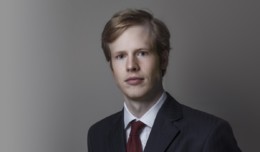Remote hearings and dishonesty
Bilta v SVS Securities and others [2021] EWHC 36 (Ch)
The third national lockdown has seen a shift in the approach of many healthcare regulators. There is now a radically increased drive to deal with cases remotely – even if contested evidence is involved – and even if the allegation is one of dishonesty.
In my view it is an uncomfortable position to take. After all, the absence of dishonesty was a key factor in the decision to proceed with a remote hearing in Re One Blackfriars (in liquidation) [2020] EWHC 845 (Ch), and the extent of contested evidence and cross-examination mitigated against a remote hearing in Muncipio de Mariana [2020] EWHC 928 (TCC). The guidance from the Court of Appeal in Re A (Children (Remote Hearing: Care and Placement Orders) [2020] EWCA Civ 583 required the court to consider – inter alia – both the importance of the issue to be determined, and “The source of any evidence that is to be adduced and assimilated by the court. For example, whether the evidence is written or oral, given by a professional or lay witness, contested or uncontested, or factual or expert evidence”. The guidance – in short – suggests that a case is unlikely to be suitable for a remote hearing where there is extensive cross-examination of lay witnesses in order to determine an allegation as serious as dishonesty.
It is in this context the decision in Bilta should be considered. On the face of it, it offers a sop of comfort to regulators looking to clear their backlog of cases. Bilta concerned allegations of dishonesty, significant factual witnesses requiring cross-examination, and ultimately the court considered such evidence could be heard remotely without rendering the proceedings unfair.
A more detailed examination, however, rather turns the position on its head.
First – the court went to some lengths to stress the benefit of hearing the cross-examination of witnesses in person. It is the “gold standard”. The court added,
“It follows from this that any form of artificial intermediation interposed between the questioners of a witness and the judge hearing that witnesses evidence must be a derogation from the “gold standard”.”
It went on:
“I accept, of course, that an in person hearing in such cases does constitute the “gold standard” and that – particularly in this case, where honesty is at issue – giving evidence remotely ranks as second best.”
Second – whilst key factual witnesses did not wish to attend to give evidence in person, the court was firmly of the view such live evidence could be heard safely. It noted the extensive steps which had been taken to ensure the court was safe, and the further directions open to the judge (e.g. changing sitting times to avoid rush hour, limiting the number of people in court) which would also alleviate the risk.
Third – whilst the court was prepared to permit evidence to be heard remotely if the witnesses still refused to attend, the court made an important qualification:
“where it is the witness who is giving remote evidence. In such a case, I readily acknowledge that the remote solution is “second best”: there may be delays or interruptions in the transmission, or a mismatch in the video and audio feeds (to name but two problems that I have personally experienced). It is not possible to ensure that such possibilities do not arise. What is important, however, is that the judge and the lead advocates should see the same oral evidence so that when submissions as to weight of evidence come to be made, the relevant persons (the lead advocates and the judge) have seen exactly the same thing.” (emphasis added)
In other words, remote evidence was permissible if the court and parties were in court to view that evidence together.
It is scant support then for the proposition that such evidence could be heard remotely, by a Tribunal and counsel each attending from their respective homes. Absent some particular vulnerability, I doubt any regulator has much appetite for asking all the parties to attend in person, whilst allowing contentious factual evidence to be given from home. Bilta is rather a helpful reinforcement of the common sense proposition that cross-examination is more effective if conducted in person rather than through the artificiality of a link.
No doubt this is not the final word on the subject. No doubt pressure will continue to grow on regulators to deal with these more serious cases. Nonetheless, the balance of authority lies against the increasingly cavalier approach of some bodies. Efficiency cannot come at the expense of fairness.
Categories: Newsletters


